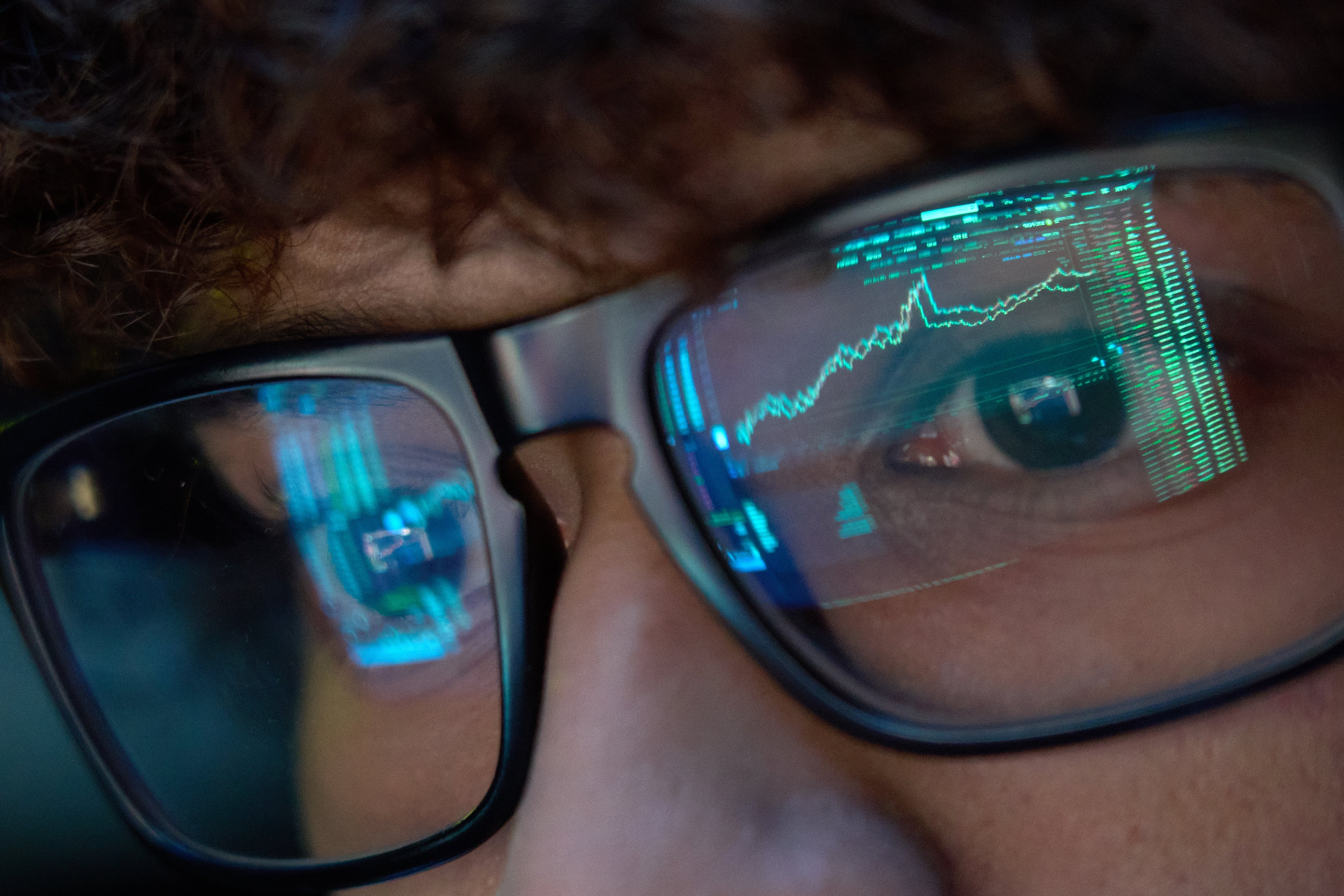Though artificial intelligence (AI) has seemingly been the hottest thing since the advent and proliferation of the internet in the mid-1990s, it's not the only game-changing innovation that has Wall Street brimming with excitement. The evolution of quantum computing comes in a very close second.
Quantum computing relies on quantum mechanics to solve complex problems that traditional computers either can't handle or wouldn't be able to perform during our lifetime. While some of Wall Street's "Magnificent Seven" are dabbling in quantum computing hardware, it's a select group of pure-play stocks -- IonQ (IONQ 3.95%) and Rigetti Computing (RGTI 6.05%) -- that have soared.
Over the trailing year, as of the closing bell on Oct. 9, IonQ and Rigetti Computing have delivered respective returns of 712% and 5,940% (not a typo!). While most Wall Street analysts are intrigued about the long-term potential of this technology, optimism isn't universal, with select analysts projecting declines in the neighborhood of 60% for both stocks.

Image source: Getty Images.
Here's why IonQ and Rigetti stocks made a quantum leap forward
Before getting into the specifics of what these analysts had to say about IonQ and Rigetti Computing, some background is needed that explains why these stocks respectively sport $25.5 billion and $15.3 billion market caps.
First off, investors are excited about the practical application of quantum computing solutions. For instance, the ability to run rapid molecular interaction simulations can speed up the drug discovery process for biotechnology and pharmaceutical companies, as well as help researchers more accurately target therapies to treat deadly and debilitating diseases.
It's also a technology that can work hand-in-hand with AI. On paper, quantum computing may be able to increase the learning rate of AI algorithms, which can "teach" large language models in a fraction of the time, as well as allow AI-empowered software and systems to learn new tasks without human oversight or intervention.

NYSE: IONQ
Key Data Points
Building on the real-world application of quantum computing solutions, Wall Street and investors are excited about its limitless ceiling. Online publication The Quantum Insider foresees this technology creating $1 trillion in economic value by 2035, while the analysts at Boston Consulting Group believe it'll lead to between $450 billion and $850 billion in economic value come 2040. Figures this large allow for multiple winners.
We've also witnessed a handful of brand-name partnerships propel Wall Street's quantum computing darlings. For instance, IonQ's Forte Enterprise quantum computer, as well as Rigetti's quantum computers, are accessible through Amazon Braket, which is the company's quantum computing service hosted on its world-leading cloud infrastructure service platform, Amazon Web Services. Having a Magnificent Seven member rely on their solutions has put IonQ and Rigetti on the map.
But based on the price targets of two Wall Street analysts, investors may have bit off more than they can chew with IonQ and Rigetti Computing.

Image source: Getty Images.
Wall Street's quantum computing darlings can plummet by up to 62% over the next year
In September, Morgan Stanley analyst Joseph Moore reiterated a previously raised price target of $32 per share for IonQ.
While pointing out the company's leading position in qubit technology in his research note, Moore also cautioned that regulatory hurdles and expansion speed bumps exist. In his view, a $32 price target reflects IonQ's competitive edge and long-term growth potential. Unfortunately, if Moore's prognostication proves accurate, shares of IonQ would plummet by 59% compared to where they ended the Oct. 9 trading session.
As for Rigetti Computing, analyst Troy Jensen of Cantor Fitzgerald raised his price target on the company mere months ago to $18. The problem is that Rigetti stock is tipping the scales at north of $47 per share at the time of this writing, which implies up to 62% downside.
Though Jensen praised Rigetti for its progress in the quantum computing arena following its second-quarter operating results, he noted that the company's quantum advantage -- the point where quantum computers solve practical problems faster than classical computers -- is still "four years" away.

NASDAQ: RGTI
Key Data Points
What Moore's and Jensen's research notes have in common is a general skepticism about the pace by which quantum computing is utilized and earns widespread adoption. Historically, investors have a terrible habit of overestimating the early-stage adoption of new technologies and overshoot when it comes to the utility of these game-changing innovations. This leads to sky-high growth forecasts eventually not being met, which causes the hype bubble to burst.
Since and including the advent of the internet in the mid-1990s, every next-big-thing innovation has endured an early-stage, bubble-bursting event, without exception. With quantum computing an even more nascent technology than AI, the prospect of pure-plays like IonQ and Rigetti Computing being in a bubble is incredibly high.
Speaking of high, the price-to-sales (P/S) ratios for these two companies are stratospheric. Whereas megacap companies that took the lead in previous next-big-thing trends typically topped out at trailing-12-month (TTM) P/S ratios of 30 to 40, IonQ and Rigetti Computing are sporting respective TTM P/S ratios of 337 and 1,506 (also not typos)! History tells us quite clearly that premiums of this magnitude aren't sustainable.
The final issue that could push both IonQ and Rigetti down to (or below) these low-water price targets is if Wall Street's most influential companies decide to build out quantum computers of their own. Even though these smaller pure plays have a competitive edge at the moment, it seems almost inevitable that Mag-7 members will throw their hat into the ring at some point.






